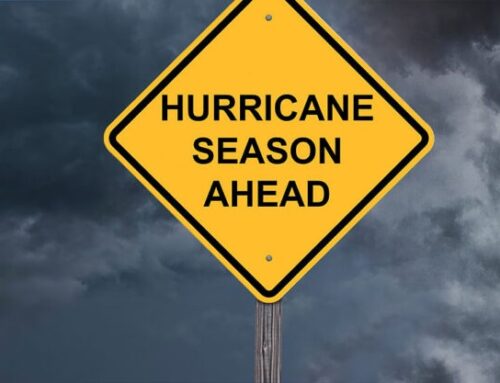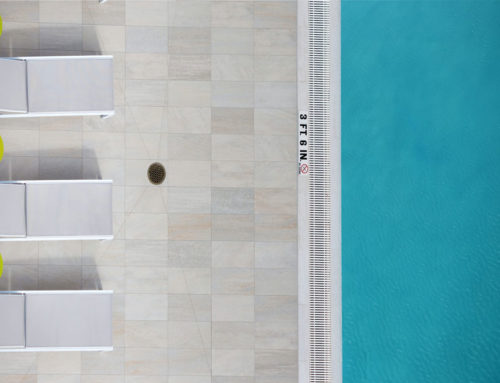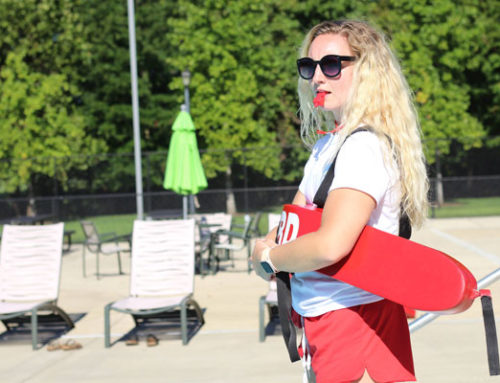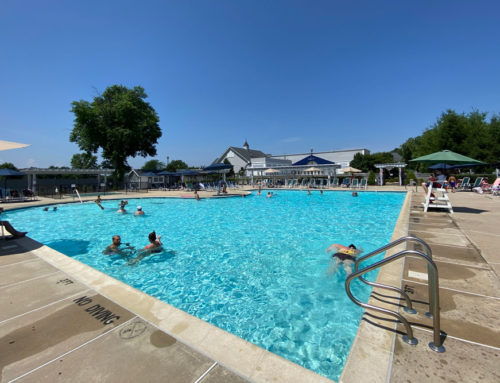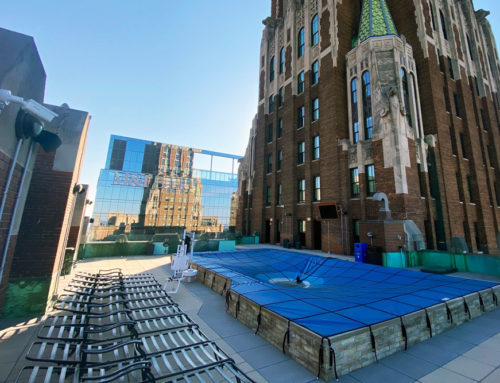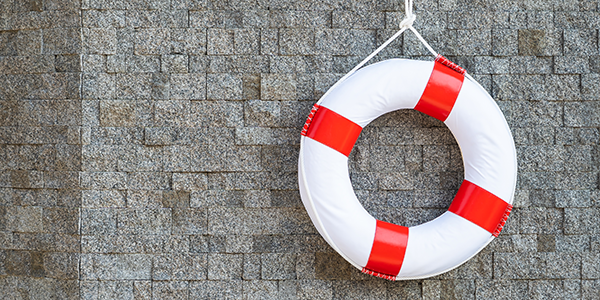
As your pool’s owner or operator, you love it when your guests are having a good time. But, to quote a certain famous superhero’s uncle, “With great power comes great responsibility.” Over 6,600 swimming-related accidents happen at pools annually. That doesn’t even account for non-swimming accidents. It’s your duty to keep the summer safe and fun for everyone. So let’s clear the air (and the water) with some handy guidelines.
1. Keep the water clear
A clear pool is a clean pool, and a clean pool means happy guests. Proper chlorination protects the pool from myriad germs.
But sanitation is a delicate balance (pun intended). Too little chlorine and your guests are at risk from recreational water illnesses, or RWIs (i.e. gross). Too much chlorine, and the chemicals may irritate — or even harm — your guests’ skin, eyes, and lungs.
Here are some recommendations for commercial and public pools from the Centers for Disease Control and Prevention:
- Keep the chlorine levels at about 1–3 ppm (parts per million).
- Maintain a pH balance of 7.2–7.8.
- Test your pool’s chemical levels at least twice a day, and up to hourly on days with heavy use.
- Shock the pool on a daily to weekly basis, depending on how much use your commercial pool gets.
- Make sure you store chemicals in a locked, well-ventilated area, away from the pool deck and other guests.
Remember: don’t forget the debris! Whether it’s dead leaves or dirt, too much junk in the water makes it difficult for anyone to see below the surface. Skim your commercial pool daily, and inspect and wash its filtration system regularly throughout the season.
2. Keep the drain clear
Drains suck — literally. An uncovered pool drain puts swimmers at risk.The main drains on the pool bottom are part of the swimming pool filtration system and can feature powerful suction. A cover that’s compliant with the Virginia Graeme Baker Pool and Spa Safety Act protects swimmers from entrapment and/or injury that is life threatening. . The U.S. Consumer Product Safety Commission and local codes speak to the importance of main drain safety and properly installed compliant drain covers. Local codes may require other layers of protection in case the primary protection is compromised. Here’s a list of pool drain safety systems:
- Safety vacuum release system (SVRS)
- Suction-limiting vent system
- Gravity drainage system
- Automatic pump shut-off system
- Drain disablement
- Other equivalent system
3. Keep the rules clear
Everyone needs a gentle reminder —and sometimes a not-so-gentle rebuke — that your pool is a safe place for all guests. We can’t say this enough — we highly recommend your pool always has a lifeguard on duty. Rules signs educate patrons and support the lifeguards in rule enforcement. It’s much harder to argue against a posted rule.
We also understand that not every pool — depending on local codes and owner preference— will always have a lifeguard ready to dive in. If this is the case for your pool, then safety signs are a no-brainer. Establish boundaries for your guests to ensure understanding, and mitigate legal liability. It’s the least you can do.
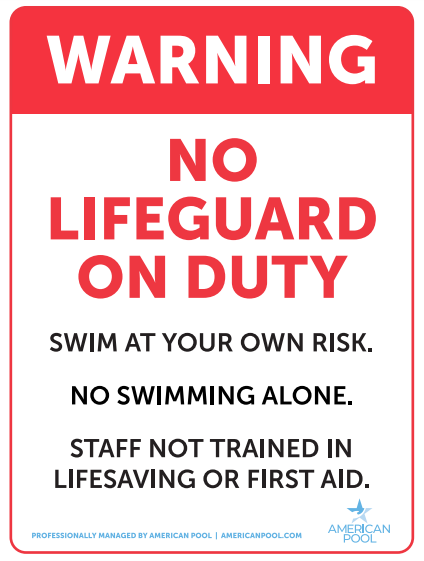
And, fingers crossed that you won’t need to use them, but every public or commercial pool should also stock the tools necessary to save a life. Every pool should have more than one U.S. Coast Guard Approved flotation device — such as ring or rescue buoys — ready and visibly available.
4. Keep the deck clear
Here’s a simple equation that every public pool manager should keep in mind:
Gravity + concrete – friction = OUCH
Deck accidents, like slips or falls, are very unforgiving reminders that gravity isn’t always your friend. Make sure you and your lifeguard staff keep the deck clear and remind guests that slip hazards, such as toys or bags, are out of the way of foot traffic.
5. Keep the facilities clear (when not in use)
Nightswimming may have been a fun distraction for Michael Stipe, but it’s also trespassing and a legal liability. Accidents in the water in the dark are all too common. Protect your pool and its interlopers from accidents by locking up at closing time, and keeping the area well lit. After the pool season, an investment in a safety cover helps keep pesky pranksters from plunging in.

